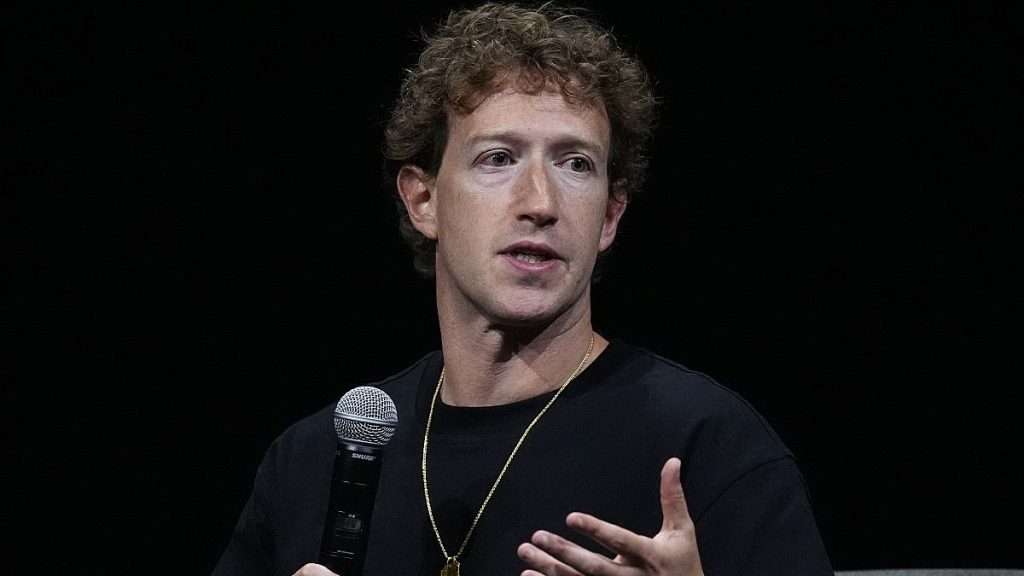Mark Zuckerberg, CEO of Meta, the parent company of Facebook and Instagram, recently announced a significant shift in the company’s approach to content moderation, particularly concerning fact-checking and content policies. This change, initially focused on the United States, will see the phasing out of professional fact-checkers and their replacement with a “community notes” system, mirroring a similar approach adopted by Elon Musk’s platform X (formerly Twitter). Zuckerberg framed this move as a return to Meta’s “roots around free expression” and cited the recent US elections as a “cultural tipping point” emphasizing the prioritization of speech. This decision arrives in the wake of Donald Trump’s return to political prominence, a figure who has historically criticized Facebook and other social media platforms for alleged censorship.
The core of Meta’s revised content moderation strategy lies in its new community notes system. Similar to X’s community notes feature, this system allows users to contribute contextual information to potentially misleading posts. Other users then rate the helpfulness of these notes, creating a crowdsourced mechanism for evaluating the veracity and context of shared content. Zuckerberg criticized professional fact-checkers as “too politically biased,” arguing that they had eroded trust rather than fostering it. This transition signifies a move away from expert-driven fact-checking towards a more distributed, user-driven approach, placing greater emphasis on community consensus and individual judgment.
Beyond fact-checking, Meta intends to simplify its content policies and “get rid of a bunch of restrictions” on topics such as immigration and gender. Zuckerberg stated that content filters, the algorithms that identify potential policy violations, will be recalibrated to focus primarily on “illegal and high severity violations.” This implies a higher threshold for content removal, requiring a greater degree of certainty that content violates community standards. This adjustment aims to reduce the inadvertent removal of legitimate posts, a frequent complaint among users who feel their freedom of expression has been unfairly curtailed. By loosening the reins on content moderation, Meta hopes to foster a more open and less restrictive environment for user interaction.
This shift in policy appears to be influenced by several factors converging within the current socio-political landscape. The recent US elections, as highlighted by Zuckerberg, reflect a renewed emphasis on free speech and open dialogue. The rise of alternative social media platforms, often championed by figures critical of mainstream platforms’ content moderation policies, also contributes to this trend. Furthermore, Meta’s move may be seen as a response to increasing regulatory pressure, especially in Europe, with legislation like the Digital Services Act (DSA) mandating greater accountability from tech giants in combating misinformation and harmful content.
Zuckerberg’s remarks also touched upon the broader tension between fostering free expression and addressing potential harms arising from unregulated online discourse. While advocating for a less restrictive online environment, he acknowledged the need to balance this against preventing the spread of illegal and harmful content. The challenge lies in finding the appropriate equilibrium, allowing for open expression while simultaneously safeguarding users from harmful material. This delicate balancing act is at the heart of the ongoing debate surrounding content moderation and the role of social media platforms in shaping public discourse.
The long-term implications of Meta’s revised content moderation strategy remain to be seen. The effectiveness of the community notes system in combating misinformation and promoting accurate information will be a crucial factor in determining its success. Similarly, the impact of relaxing content restrictions on the overall quality of online discourse and user experience will be closely monitored. This shift in policy represents a significant departure from the prevailing approach to content moderation and sets the stage for a new era of experimentation and evolution in how social media platforms manage online communities. The success or failure of this approach may well influence how other platforms navigate the complex and often conflicting demands of free speech and content moderation.














